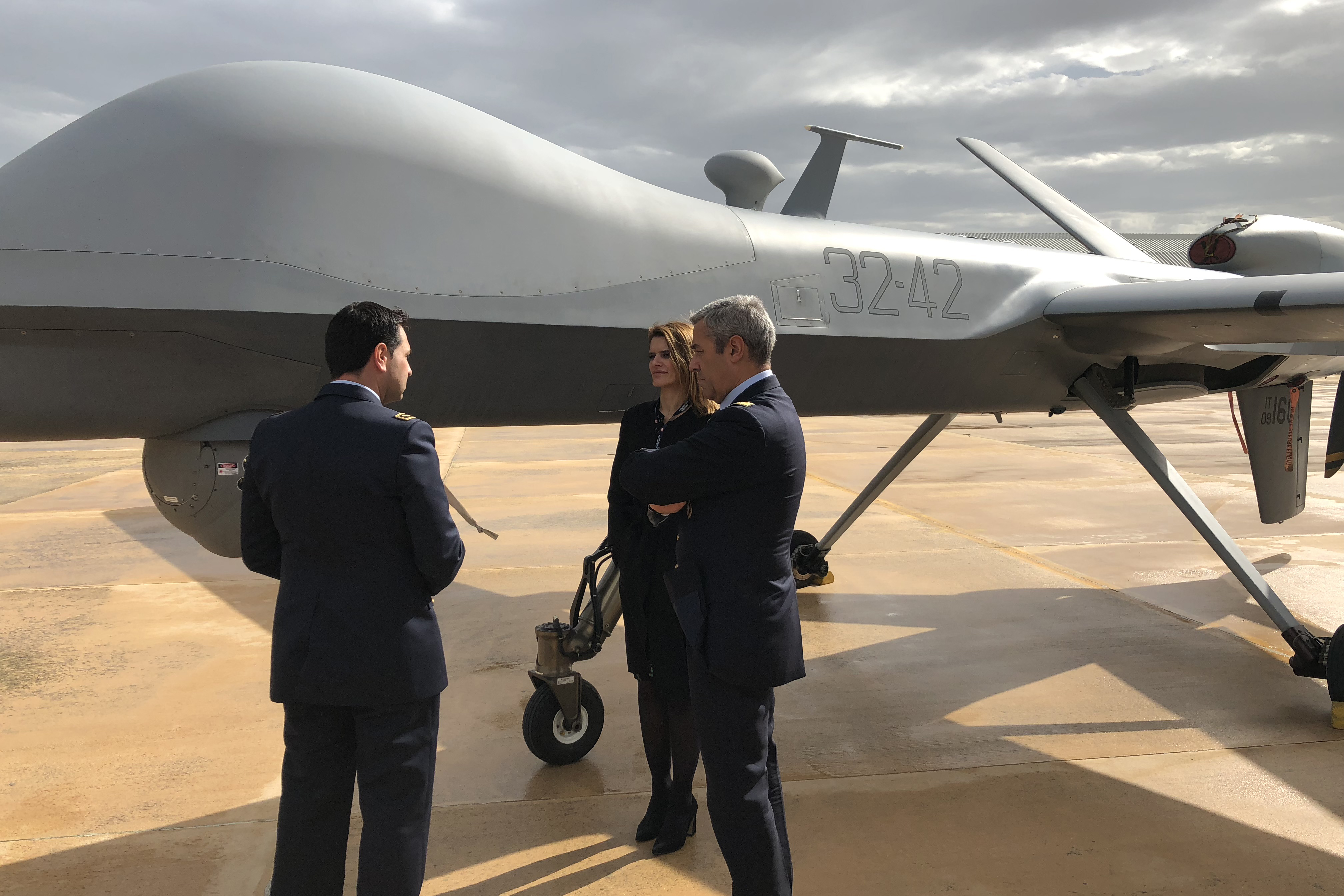Dutch Parliament Asks Government to Investigate Arming Drones

Secretary of State Barbara Visser visits the Italian airbase Amendola to explore cooperation on using the MQ-9 Reaper. (Source: Dutch Ministry of Defence, 29-10-2018)
The Netherlands is expected to receive four unarmed MQ-9 Reaper drones near the end of 2020, but already some parliamentarians are keen to open the debate about arming them. In November 2019, the Dutch Parliament voted in favour of a motion directing the Ministry of Defence to start investigating whether these drones should carry weapons.
The motion, proposed by the lead governing party VVD, is a marked departure from the earlier position in which the VVD said it was up to the Ministry of Defence to lead the way regarding the Reaper. In response to parliamentary questions that same month, the Ministry of Defence explicitly stated it had not identified a need to arm the drones.
The reasoning provided for this motion was that it would improve the security of Dutch soldiers during missions and that they were still ‘manned’ by pilots though not actually in the vehicles themselves. Another motion by the far-right PVV went even further, proposing to skip the investigation and proceed to arm the drones immediately. This was voted down, however. The Dutch air force has signaled it is open to arming drones. In an interview in 2018 Dennis Luyt, the Commander of the Netherlands Royal Air Force, stated that the air force was ‘ready for armed drones’ though he currently didn’t see the need due to practical, rather than principal reasons. However, other parties such as the liberal democrats D66 and the Green Left have previously opposed such a move, calling for parliamentary debate first.
The Ministry of Foreign Affairs has been concerned with containing the dangers posed by armed drones, both commercial and military. In December 2019, the Dutch Minister of Foreign Affairs Stef Blok (VVD), in a speech at the Amsterdam Drone Week, discussed how drones could make the world a more dangerous place, asking manufacturers ‘How can we jointly ensure a safe world in which drones are used as a force for good instead of evil?’. Though his speech largely focused on commercial drones, he also mentioned that the Netherlands was “taking great pains to ensure the security of military drones”’ which included starting a new process of thinking about how to control new technologies at the Rethinking Arms Control Conference.
The Minister then proceeded to discuss ways in which the Netherlands has tried to address the issues of military drones, including through the process of developing a ‘joint declaration’ on International Standards for the Use and Trade of Armed Drones. This declaration has been signed on to by 53 countries, yet in its current form, it weakens already existing standards on the use and trade of armed drones. The Netherlands forms part of a core group of states that are working to develop these standards. In the wake of recent incidents with drone killings in Libya and Iraq, PAX published an op-ed in the national newspaper Trouw on the need for an international framework around the use and export of drones, urging the Netherland to take a lead.
In his call for new policies and standards to limit the dangers posed by commercial drones, Blok challenged attendees to think about how we can other commercial drone-producing countries on board as well. He then promised he would take those ideas to the “same core group of countries that developed the standards for military-class, armed drones.”
But these efforts to develop standards on the use of armed drones strongly contradict the simultaneous push for arming drones without having clear policies and standards in place. The Dutch Reapers will likely be deployed somewhere early 2021 and will be fully operational in 2023. Though they can be armed with small adjustments, the Dutch Ministry of Defence will have to start a new procedure and inform parliament if it sees the need to arm the drones.
When that moment comes, the Dutch parliament will have an opportunity to demand a robust legal position that clarifies the limits on the use of force both inside and outside the battlefield. Without these limits, the Netherlands risks following the precedent set by other drone-using states which operate in legal grey areas or are carrying out extrajudicial killings. Committing to clear and robust legal standards would therefore help prevent the further erosion of international law, and be beneficial to international security.

